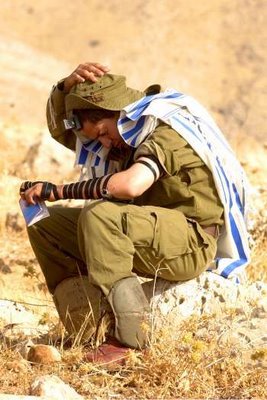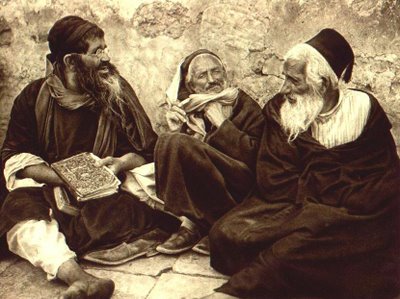
Like everyone else, when I think of this unprecedented event, filling with tragedy and glory, I am overcome by melancholy and pride.
Undeniably, 60 years ago history was made within the walls of Warsaw ghetto. A few hundreds Jews, the last of a community numbering 500, 000, rose against what were then the mightiest legions in Europe. Without tangible help from anyone, without training, without any real military experience, they waged a war that will be remembered by future generation as one that, for one moment, made the enemy tremble.
All other underground movements in occupied Europe received strategically valuable assistance from London, Washington, and Moscow, where special units took care of their needs and paid attention to their concerns: vital links were established, special planes dropped sophisticated weapons and precious radio transmitters, logistical support was made available, agents smuggled through borders and brought money and information… Only de Jewish underground was neglected, isolated, and ignored. Its heroic warriors were the loneliest victims of the most inhuman of wars. A single airdrop, an occasional rescue mission would have proved to them, and to the enemy, that they were not forgotten.
When this story is told to today’s students, they respond with disbelief and frustration. After all, the Allies had spent gigantic sums and invested extraordinary efforts organizing and financing armed resistance against Germany. Why were Jewish groups, even from the purely pragmatic aspect, so totally disregarded instead of being included in their war effort? Is it that they were given up from the outset? Or that no one trusted their military capacity, their bravery, even their loyalty? Is it possible that the Allies simply did not care?
One reads Mordechai Anielewicz’s letters to his comrades on the Aryan side, or his appeals to Jewish leaders in Palestine and America, and one wonders: Where did he find the strength to overcome the despair?
It was shortly after Stalingrad, much before D-Day when the Jewish fighting Organization of the Warsaw Ghetto staged the first uprising against Germany. Hitler’s Wehrmacht and Luftwaffe, Himmler’s SS Panzer division and Gestapo agents still had enough power to prepare new battles on every front, they still terrorized Europe with their iron fist - how did they rebels in the Warsaw ghetto manage to fight them day and night and inflict serious casualties to their rank? It took the Germans longer to silence the ghetto in Warsaw than to conquer France.
I remember: I raised these issues in a conversation with the legendary Anteks Zukerman, the second in command of the uprising. Our first meeting was also the last.
For years and years we were in touch. Often we spoke on the phone, looking for dates. We promised each other each other: next time we must meet. I have many things to discuss with him. Finally, in the early eighties, at the occasion of a world gathering of Holocaust survivors,” I decide to stop postponing. I came to the “Ghetto Fighter’s Kibbutz” in the North. Antek and I spend several hours alone, sharing views on the role of the memory in the Jewish history. He spoke to me of his ghetto in flames and I told him of mine, so short-lived, emptied of Jews. We discussed the execution of the first Jewish Gestapo collaborator. And the exultation that penetrated the Jewish fighters when, for the first time, they aroused fear in the enemy. And the episode describing them dancing when they shot their first SS.
From Antek I learned a lot about dignity in times of distress and oppression. Why did all Jewish fighters insist on the importance of “saving Jewish honor” in resisting the murderers? Didn’t all heroes perish as martyrs and all martyrs as heroes? Was dying with a gun in the hand worthier than with a prayer on the lips? Most of my questions remained questions.
Our conversation was interrupt by one of his friends: a meeting was taking place and was invited to take part in it. Antek, already feeble, was carried outside in his chair. My entire address was directed at him. When I returned to Jerusalem that same evening, still in the car, I heard the news on the radio: He had died.
And now as I remembered Antek, I try to remember his friends, those who do not make to the land of Israel. They fought alone, they suffered alone, they prayed alone, they faced death alone but they did not die alone-for, on a certain level, something in all of us died with them. by Elie Weisel

